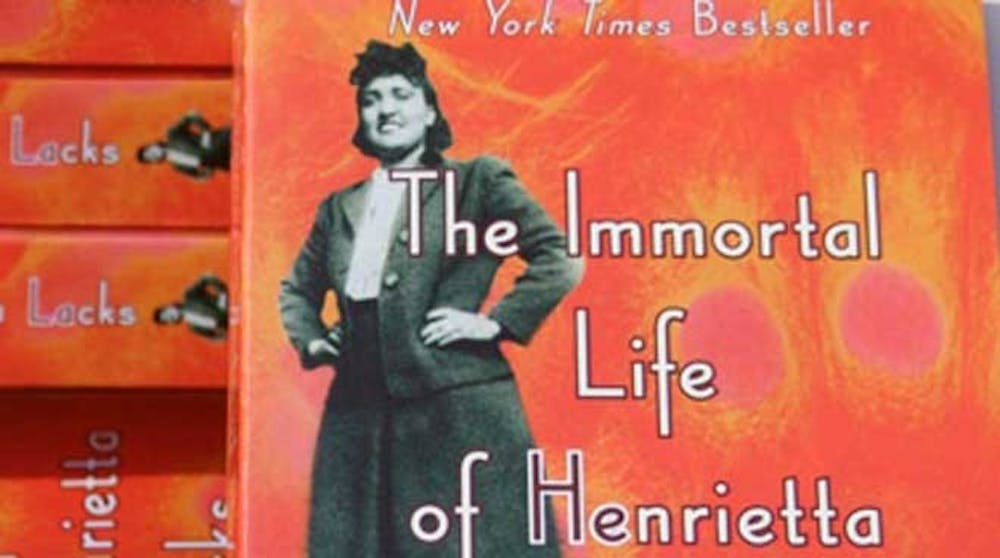"The Immortal Life of Henrietta Lacks" by Rebecca Skloot was chosen as the One Book, One Campus selection for 2012. Faculty members selected the book because of its variety of themes and overlapping subject areas, including science, ethics and leadership, which have the potential to provoke valuable conversations across campus, said Molly Field, administrative coordinator for the Office of the Chapliancy.
"The Immortal Life of Henrietta Lacks" is a nonfiction book about a poor, African American tobacco farmer whose cervical cancer was diagnosed in the late 1940s, according to Skloot's website. Lacks died in 1951, and her cancer cells were taken without her permission. Since her death, Lacks' cells have been bought and sold and have made valuable contributions to science, yet her living family cannot afford health insurance, and Lacks herself remains largely unknown, the website reads.
Oprah Winfrey and Alan Ball are planning to make the book into an HBO movie, according to Skloot's website.
Field was involved in the selection process for the book and said one of the aspects of Skloot's book that was attractive to the administration was its many different layers and its ability to appeal to so many different areas of interests. The One Book, One Campus program has also never before focused on a science book, Field said.
The One Book, One Campus program started in 2005 and invites the entire campus community -- students, faculty and staff members -- to read one text and discuss it, Field said. The program coordinators hope that participants will have conversations with and get ideas from all different constituents of the campus community.
Sophomore Annie Geckle read the book in her first-year seminar and said the ethics component made the book an appropriate selection for the One Book, One Campus program.
"The book sparks some very interesting discussions about values and how an individual defines right and wrong," Geckle said.
Field is in the middle of reading the book, and her favorite part so far was how relatable and understandable it is, even for a person not familiar with science, she said.
Geckle agreed, "there is no need to have any previous knowledge of medical terminology," she said.
Field said the response from students and faculty about the selection had been overwhelmingly positive. When Field sent a Spiderbyte about the book, she received a number of enthusiastic responses, including one from a Richmond professor who had contributed to the writing process of Skloot's book, she said.
Omar Quintero, assistant professor of cellular and molecular biology at Penn State College of Medicine, will begin teaching cell physiology and integrative physiology at Richmond in the fall. In 2007, Quintero met Skloot while she was in the process of writing her book, Quintero said. Quintero said he and Skloot had spoken about the 10-year journey that it had taken to put the book together and continued to email about the progress of the book. Quintero provided images of cells that eventually became the inside title page of the book, he said.
"This book has become so popular as assigned or suggested reading on college campuses because it highlights what college education should allow you to do as a citizen of the world," Quintero said. "It provides a new context for discussions of the power of relationships established between different societal groups, and how they have and haven't changed over time."
Enjoy what you're reading?
Signup for our newsletter
Quintero said he would continue his cellular biology research at Richmond, which included working with Lacks' cells.
Faculty members in the chaplaincy are still in the process of planning events that will supplement reading the book. Field said they hoped to plan a visit to Lacks' grave, which is located in Clover, Va., and also to have Skloot visit campus to talk about the book.
Contact reporter Molly Gentzel at molly.gentzel@richmond.edu
Support independent student media
You can make a tax-deductible donation by clicking the button below, which takes you to our secure PayPal account. The page is set up to receive contributions in whatever amount you designate. We look forward to using the money we raise to further our mission of providing honest and accurate information to students, faculty, staff, alumni and others in the general public.
Donate Now



